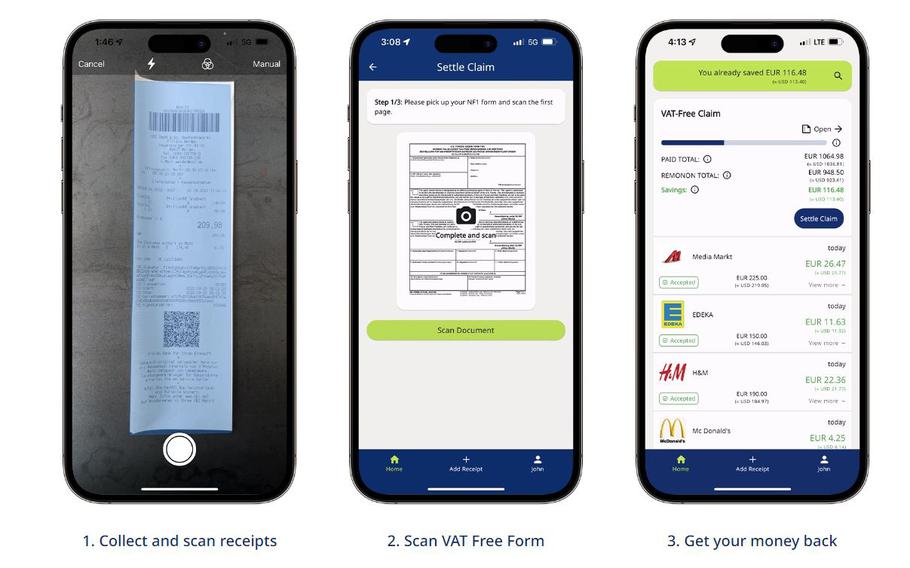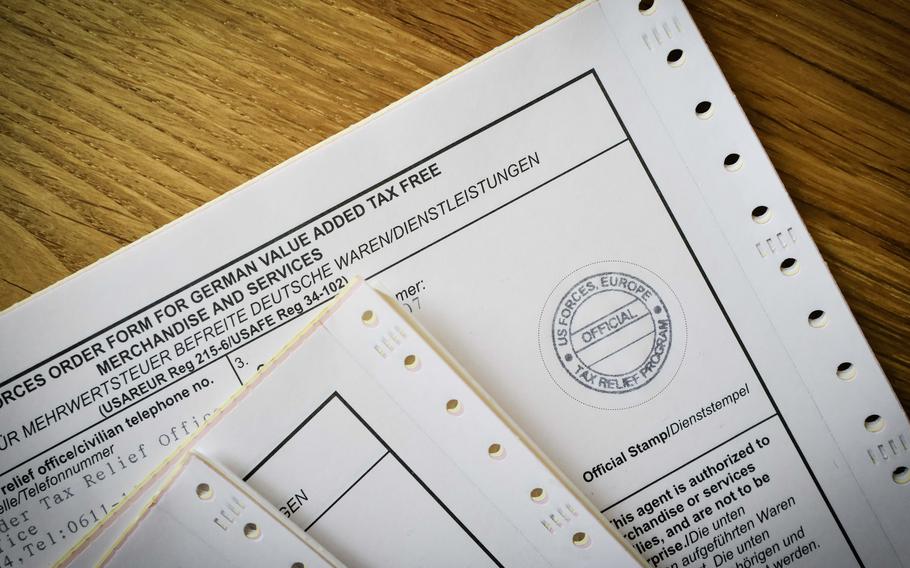
Screenshots of the Remonon mobile application, shown on the company website, indicate the app allows users to scan purchase receipts and file claims for VAT reimbursement directly from their smartphones. Installation Management Command-Europe is looking at using an app to streamline VAT reimbursement for U.S. forces-affiliated personnel in Germany. (Remonon)
WIESBADEN, Germany — A German company’s mobile app that promises to take much of the hassle out of using value-added tax exemption forms for off-base purchases is set for a trial run with U.S. soldiers.
Soldiers at orientation briefings in Wiesbaden recently were encouraged to sign up for a pilot program to test Remonon, an app created by the Grafenwoehr-based Novat.
Military shoppers still would need to buy $10 VAT forms, which doubled in price in 2022, to receive tax-free purchases from off-base businesses that accept the forms. But if plans in early stages of development come to fruition, shoppers would be able to buy one form to use for several purchases.
Remonon users can scan their receipts from multiple businesses into the app, according to the company’s website. Remonon then charges a to-be-determined service fee for handling all VAT processing.

Installation Management Command-Europe said it is evaluating ways to simplify value-added tax reimbursement for U.S. forces-affiliated personnel in Germany. A pilot program is being tested with Wiesbaden soldiers using the Remonon app. (Alexander Riedel/Stars and Stripes)
The company is seeking to bundle “micro purchases” that shoppers normally wouldn’t use a VAT form for, according to the description in Apple’s App store. Users wouldn’t have to complete a form in the store and would be reimbursed for the taxes at a later date.
The pilot program applies to VAT forms for purchases valued up to $2,500.
Remonon describes the test phase as by invitation only for U.S. personnel in Wiesbaden. Organizers already have enough married personnel willing to try the app and were seeking out single soldiers, an Army employee said at a recent Wiesbaden orientation briefing.
A Novat employee contacted by phone referred questions about the program back to Installation Management Command-Europe.
The Army command confirmed the creation of a test group but declined to provide program details or refer to Remonon by name.
“We’re exploring options to provide better VAT services in Germany,” IMCOM-E spokesman Mark Heeter said. “We plan to have a pilot of an app soon.”
The test represents an about-face for the Army. In 2022, The IMCOM-E Tax Relief Program advised U.S. military personnel to avoid third-party mobile app VAT services. Remonon and Novat were among the providers that service members were urged not to patronize over concerns of legality and tax liability.